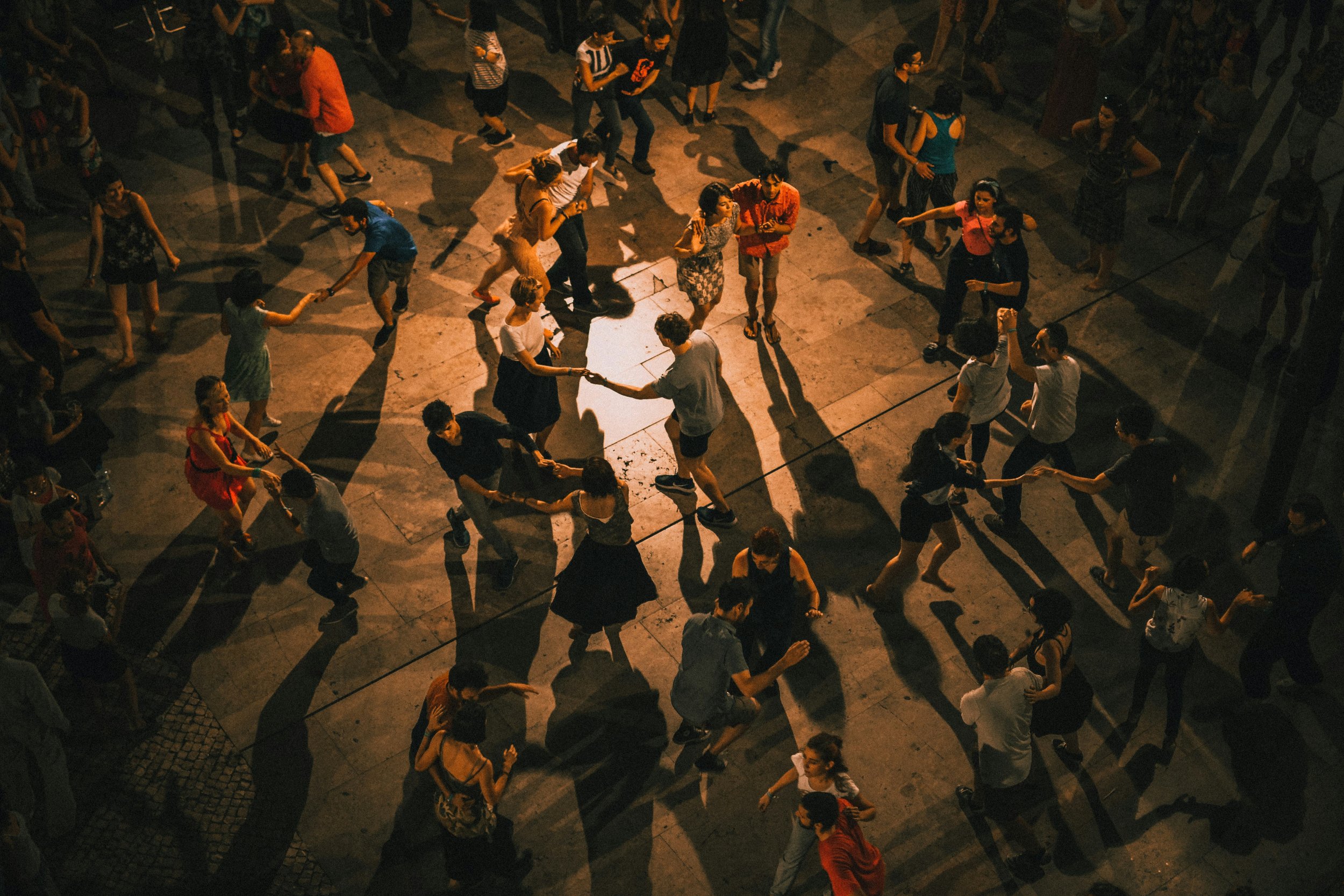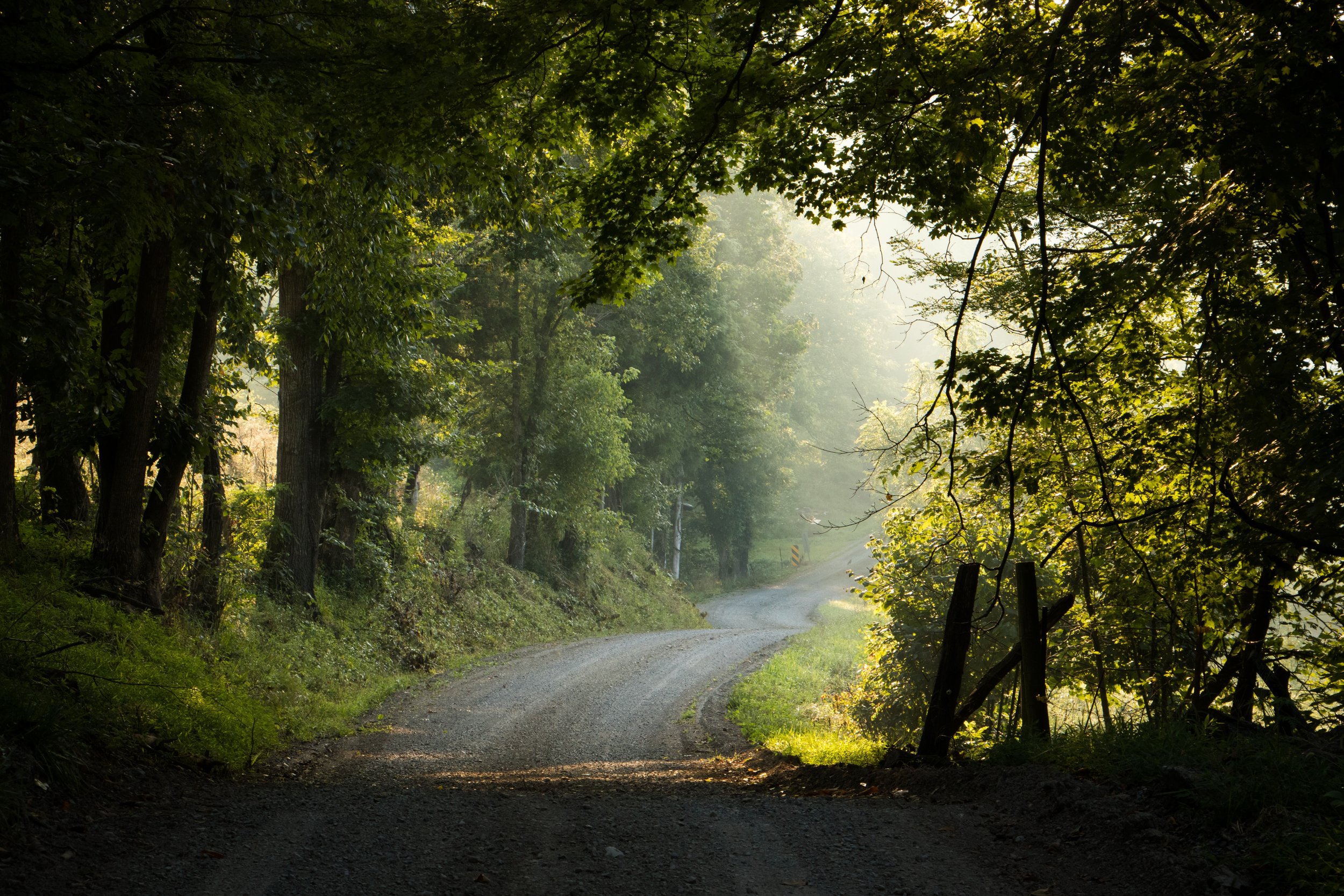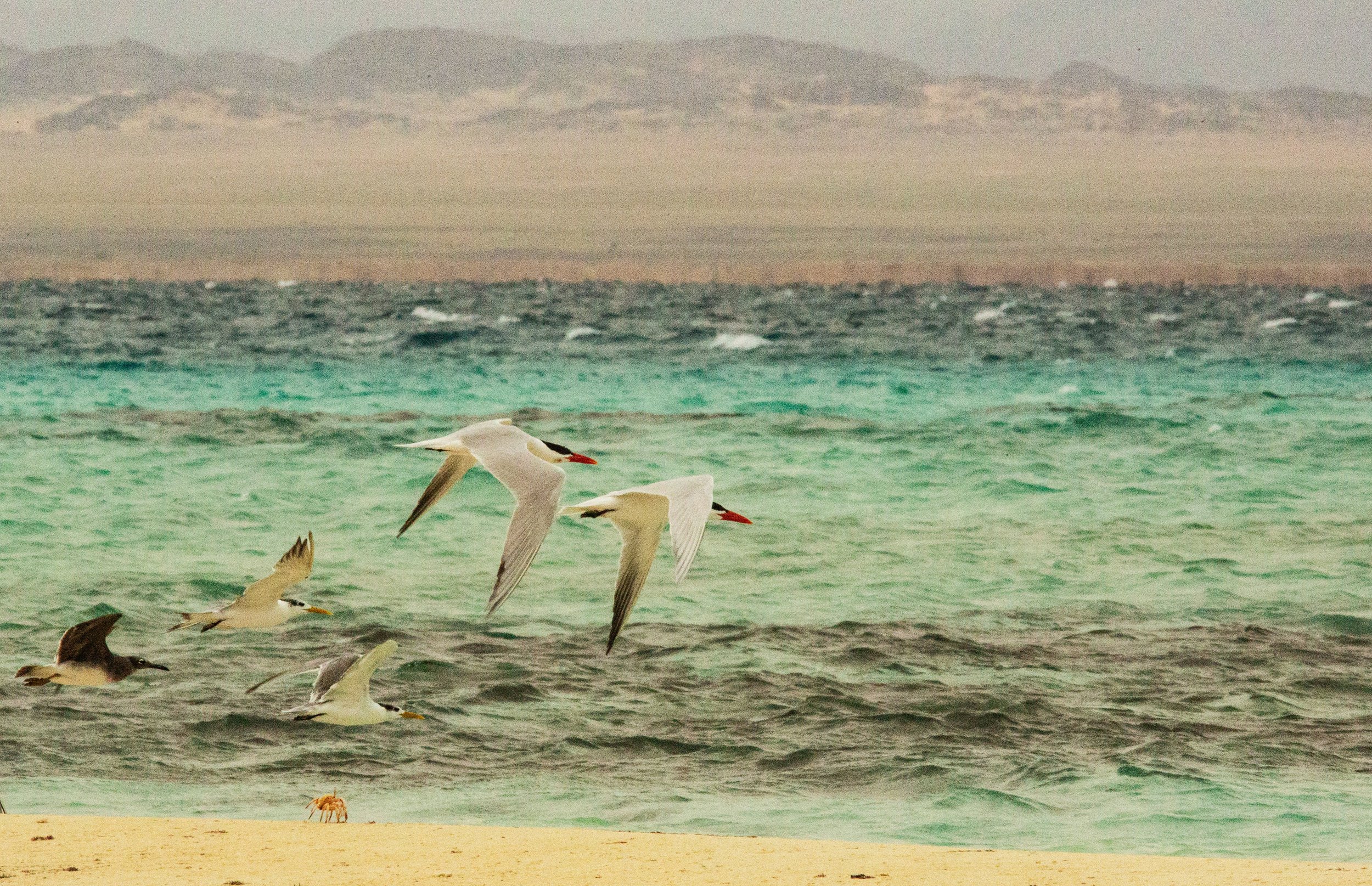So Many Ways to Dance: Reading Raymond Carver in Wilmington

On the North Carolina coast in late September, M and I went to an old-time jam in a friend’s backyard. The southern humidity had started to lift, and the air felt clean. Standing near the fence, we watched a couple swing dancing. They saw us watching and offered a lesson. We agreed, separating from each other to pair up with them. The man told me to press my hand firmly against his so I could really swing. I did, and the cool grass dampened beneath the pressure of my feet. It was wonderful, I realized, to feel entangled in a dance, a tune, a well-swung swing. When we stopped dancing, M gravitated toward the musicians and the other woman walked away. When it was just me and the man, I asked how long he’d been with his dancing partner, and he chuckled. He told me he’d tried, but they weren’t really together. He shrugged and laughed as he said that he loved her, but she didn’t want it. He was in his late thirties; I was twenty-three. I didn’t know much about love, but I knew rejection, the way it felt impossible for love to be one-sided. Even then, so early on in our relationship, I was worried M would come to realize I wasn’t who he wanted. But I didn’t say that to the man. We only stood together, taking in the fiddle and the banjo, their alternate crooning.
*
In Raymond Carver’s short story “Why Don’t You Dance,” the story’s main character, Max, is single and giving away the household items he used to share with his love. He sets up a bed, a nightstand, a reading lamp, a portable heater, and a chair, among other things, in his front yard. The story opens with him looking at it all. He is standing in the house drinking whiskey, heartbroken. Just as he’s wondering why no one has stopped, even though he believes he wouldn’t stop if he passed by this display either, a young couple arrives. They are looking for things to furnish their new apartment. Walking around, they touch the blanket, they pretend to use the blender. They lie together on the bed. The woman asks the man to kiss her, and he refuses. She holds him and waits. Eventually, Max meets them outside and offers them a drink, himself already drunk. They accept, and the three of them sit together on the furniture display in the front yard. The couple asks for prices, and Max agrees with the numbers they suggest, eager for items to sell. And then he encourages the couple to dance. Why don’t you dance, Max asks the couple. Why don’t you dance? Eventually they do, holding each other while moving slowly up and down the driveway. The man decides he is done dancing before the woman is satisfied, and so she turns to Max and asks him to dance instead. He accepts and dances the woman around the twilight-soaked yard. Between the two of them, Carver describes something intimate, as if they satisfied an unknown need in each other.
*
After the old-time jam, M and I thanked the hosts, and while we walked to the car, I told him the man had asked if we were engaged. I looked over at him with raised eyebrows, and he laughed. We had only been together a few months. In his car, M turned on bluegrass and sang along to a song about mountain dew, making a point, while enunciating the words “mountain” and “dew,” to look over at me and grin. We were new enough to each other that our relationship felt fully light, and once we were alone, I didn’t think about the man the rest of the night. I didn’t think about him in the morning either, but later on the next day, when I was driving to a park to read beneath a tree, I thought of him and how he might be feeling today after a night of music and dancing, after being with a woman who wouldn’t, probably, ever love him the way he wanted.
“When I met someone new, I would ask them if they believed in love and if they would read a story.”
In my early twenties, newly living in Wilmington, I was obsessed with Raymond Carver and the idea of love. The first man I dated in town was a poet, and we spent our evenings slurping red wine and speculating. I hadn’t been in love yet, but I wouldn’t know that until later. It can be hard to tell how we really feel sometimes. In brief moments, I thought I could love the poet. He was endearing and curious, kind and soft. Together, we sat on the beach in the winter and wrote love letters to put in the Wrightsville Beach mailbox, which was stocked with notebooks and pens for passersby to write notes. I asked the poet to read my favorite Carver story and tell me what he thought, which became my ritual in dating. When I met someone new, I would ask them if they believed in love and if they would read a story. Most of the men called the story depressing, coming back with comments about how it shows that no one really knows what love is, and I couldn’t disagree. My second date with M was at a dark bar a few blocks up from the Cape Fear River. He wore all denim and I wore cut-off shorts with a knit sweater. I asked him if he believed in love and he said yes, though he hadn’t been in it. We drank IPAs and flirted at a tall circle table beneath a single light. Everything felt sexy: the way he looked, the way my cheeks were warmed with flush, the way I could tell he thought I was beautiful. By the end of the drink, when we went down to watch the river squirm like a thick black snake, I already knew I wanted him to love me.
A month after the old-time jam, M and I spent a weekend in North Carolina’s mountains. We hiked to an icy pool, where he stripped to his boxers and jumped in. We brought beers to watch the sunset on the Blue Ridge Parkway, holding each other against the fire glow of another day ending. We drove from Asheville to Boone, mesmerized by the stained glass orange light of the sun pressing through the mid-October leaves. Zipping around bends, he had a hand on my knee and I ran my fingers up the back of his head. Later, when we were making our way back to the coast, he told me that while we were driving to Boone, he was imagining a future in which we live together in the mountains, that maybe we could grow old in wooden rocking chairs, which I thought was sweet. Later still, closer to the coast, he told me he wasn’t sure if what we had was a long-term thing. Those two thoughts held in tandem made me feel stuck in neutral, unable to drive forward or reverse. I’ve always had a hard time finding reasons people would want to love me, and suddenly that conflict was materialized. He thought he could love me for a long time but also had leaving on his mind. I told him that was okay and moved on, kissing his cheek in an attempt to prove to us both that it didn’t bother me. Before I met M, I understood love as a thing that’s earned, and so I didn’t expect his to be any different.
*
Carver writes that the woman clings to Max in his front yard, that she feels unbearably happy; however, when she leaves with her man, her happiness evaporates. At first, she can’t stop talking about what they experienced. She tells people about the yard sale, about how they had danced. In talking only about the drink and the dancing, the woman couldn’t capture the way she and Max had filled space for each other. In both of their loves, either current or past, there was a sense of something missing. The woman was surprised at the way she felt desired by Max, which makes her look harder at her relationship. Why does she not feel desired by her man, and why does she stay with someone who makes her wonder if she’s actually wanted? After an evening of driveway dancing, the woman realizes her man won’t ever, probably, love her the way she wanted.
*
Our first breakup was on a Friday night after one of M’s gigs. Our second was on a Sunday morning when he got home from the gym. Each time, he ended things out of nowhere, pulling an answer from a feeling I didn’t know had taken root. M and I became one of those couples who couldn’t stay together but also couldn’t stay apart. Two months after our second breakup and a few weeks into rekindling, he came over. I was living in an old house in Wilmington’s historic district. The house was too old to stay cool, so the air conditioning ran all day, only switching off sometime in the night, when the darkness calmed the heat. In the quiet, I could hear cockroaches, the swampy bugs that seemingly drank the town’s humidity, pacing the hardwood. M knelt beside my bed and held my hand. He was crying. He was looking at me so lovingly. I could feel it all—the love, the sadness, the complexity of who we were together. He said he would never forget this feeling of knowing that he loved me. I was lying under my sheets, letting him hold me and say what he felt. He was coming back to me. He was, once again, fixing the heart he’d broken.
Being together again always felt like the first spring day when it’s warm enough to sit on the porch with bare skin—delightful and full of possibility. It was particularly easy to notice the sun smearing clouds like pink frosting across the evening sky, to exist in a state of grace. It had been two years since the old-time jam, and he lived in a little house painted in Ronald McDonald colors. Sometimes on Saturday mornings, we’d make coffee and read together on the couch or he’d slice onions and peppers to fry alongside potatoes and eggs. Much of our time together was mundane, spent sitting and reading or standing and cooking, but those are the moments I miss the most, the ones that still feel like being handed a freshly picked flower.
For my 26th birthday, we planned to eat at a French restaurant with outdoor balconies overlooking the Cape Fear River. Throughout my years of living in Wilmington, I passed this restaurant every day. Always, I looked up in awe at the people at those tables; their romance was palpable to me. I made our reservation for sunset so that the August heat would be less oppressive and we could watch the sun melt down toward the river. When the day came, M and I walked in giddy, but the hostess told us the balconies were first-come first-serve, and there were none available. We contested briefly and then headed to our usual spot. Sitting at the bar, we ate fried spicy brussel sprouts and curry. Afterwards, in my room, we braided our bodies together so tightly it was like if we loosened our grip even a centimeter, one of us would evaporate and the other person would be alone in bed, without this love that finally felt like a constant hum.
In February, we moved into a little pink house in the mountains. Our first weekend in it, I dried oranges in the oven and put them on strings to hang in the windows. As I was tying knots to catch the slices in their middle, M came in smiling to kiss me in the kitchen that was now ours. We were so happy to be living together, to be loving each other in a new way. We talked about being in that house for years, joking that maybe one day the landlords would ask us if we wanted to buy it from them. The dance of our days became routine. I’d wake early and kiss his forehead before going for a run. He’d grunt or lob an arm over my back to hold me close to him. One night in early May, we were lying together in bed when he told me a friend had asked him if I was his person, and he’d said yes. He looked over at me and grinned. I curled toward him, feeling hopeful that as we grew our life in this house, I would soon be able to trust it all for real.
The last day of May, we went camping at the South Toe River. After dinner by the fire, we fell into another conversation about our relationship. He said he was questioning if this was It. I said I thought we were past this, the doubt. He had told me when we got back together that he was sure I was right, that he was finally going to love me and stay. We cried and kissed and held each other in our camp bed beneath the trees. We ended the night by saying we wanted to be together. The next morning, we sat by the glassy river. There were kids perched on rocks fishing with small plastic rods and men wearing waders, knee deep in the early summer’s cold water. We sat so our bodies were touching. I was thinking about what our relationship was for me, questioning why I wanted to stay in something that brought me anxiety. The idea of things ending felt like a kick to the face, even though I wasn’t sure he was giving me what I needed. I regularly had dreams where we would be at the grocery store or at a fiddlers convention and he would just turn to me and tell me he was done. I’d wake up anxious, wondering if I trusted the stability of us, and then he’d hold me in his arms, cooing he would never leave me again. What I needed most was to feel safe in what we had. What did it say about me that I kept going back to someone who only wanted me sometimes?
“What did it say about me that I kept going back to someone who only wanted me sometimes?”
The first week in June, M ended things for the third time. Sitting on the couch in our shared home, he took an interest in the patterned rug we’d picked out as he said this time he was certain. I reminded him of our last breakup, how he’d felt certain then too, and of how he always came back around to wanting me. We spent days talking in circles, moving between the front porch and the living room. There were so many questions. I kept asking him to fight for us, but he was done, and he was telling me so. This time though, our lives were intertwined. We shared a house, silverware, bedsheets, body wash—I loved him and he didn’t want it. I tried to pinpoint blame and remembered a feeling he liked to call back to: One time, he’d come home from a gig to find me reading on the couch, and when I didn’t immediately ask him how it went, he assumed I was angry. Later, after I’d tried to assure him I wasn’t, I went into the bedroom and found him lying on his back, his body in the shape of a star. He asked me if I even loved him anymore. I went to sit beside him and said of course I loved him, wasn’t it obvious?
In the days following our final breakup, I toyed with the idea of filling our front yard with M’s possessions—his desk and bookshelf, his banjos and fiddle, but not his guitar. I still loved him at this point, after all. After everything, I had finally realized that he wouldn’t, probably, ever love me the way I wanted. I recalled how, a few nights before we broke up, we cuddled on the couch in our living room, lit by a single lamp. He nestled his body as close to me as he could. I was still a little anxious about our conversation on the camping trip, but he reassured me—he loved me and he didn’t see our end. Neither of us knew at that moment that in a few days, it would all be over. He would tell me he’s done, and I would laugh before realizing he wasn’t joking. As he pulled away from our house, I remembered that part of me knew this was going to happen, which made my chest clench up like an angry fist—but a larger part of me had believed in him, in us, in love, in the idea that people always change when they say they are going to.
*
If I were the woman in the story, half-drunk and dancing with Max, I would realize M would always leave me. Whenever we were sappy and obsessed with each other, we’d say that we are meant to be—we always come back together. It’s like we forgot he also always ends things, and I always give him another chance to break my heart. It is all so embarrassing, both to see something for what it is once it’s over and to feel as though I lost because I’m not the one he wants. It is so embarrassing to feel the need to ask for love. In “Why Don’t You Dance,” love is a presence that takes root in the woman while she’s dancing down the driveway with Max. She doesn’t love Max, but being with him in those brief moments, she realizes what she has might not be the kind of love she wants. Her man didn’t see her the way she wanted to be seen, didn’t love her fully on his own, didn’t want to keep dancing her down the driveway, and what else did he not want to do? Dancing with Max made her see the different ways people can love and be loved. There are so many ways to dance.
ABOUT THE AUTHOR
Jamie Tews earned an MFA in Creative Nonfiction from the University of North Carolina-Wilmington. Her work can be found in Understory, the North Carolina Literary Review, and Eastern Iowa Review, among others. She currently lives in Asheville, North Carolina, where she works in marketing, teaches creative writing, and runs in the mountains.
Read Jamie’s “Behind the Essay” interview in our newsletter.
Edited by Aube Rey Lescure.
Header photo by Ardian Lumi.










At the end of August 2023, I flew to Indianapolis where my friend, the artist Kate Parnell, picked me up in her mom’s silver Hyundai Sonata of late-90s vintage. It maxed out at 62 mph. Above the license plate, Kate had stuck a bumper sticker that read “Garfield from Memory,” the name of a four-year art project that had become her full-time job. The tagline: “The great thing about painting Garfield from memory is no one can tell you you’re wrong.”